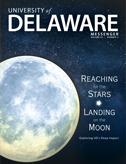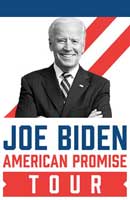
Truth in the Trump era
Journalism finds itself looking inward as its foundations falter
FACULTY | In an age of “fake news,” alternative facts, citizen journalists, fabricated-but-widely-circulated social media posts, falling circulations, shrinking resources and a growing resentment against mainstream media outlets, Pulitzer Prize-winning reporter and journalism instructor Dan Biddle has a question. “What the hell do we do?”
He asks it on behalf of the profession, but he directs it to the two dozen students of his E409 seminar, “News in the Trump Era.”
“I consider many principles of journalism as absolute,” Biddle tells his students. “You must strive to get facts right. You must strive to get both sides of the story. You must be accountable to your editors and more importantly, to your audience.”
But, he adds, lots of what traditional journalists do is being challenged in the Trump era. Lots of absolutes are no longer absolute.
Among them: How to cover presidential Tweets. How to combat false claims of fake news while avoiding potential “confirmation biases” (the tendency of news consumers to accept “facts” that confirm their political views and reject the ones that don’t). Perhaps most interestingly, how to examine media distrust and assess the mainstream media’s failure to cross cultural lines and listen to the voices that mattered most in last year’s election.
“You’ll need to talk with Trump supporters in our region,” says Biddle. “In fact, we’ll do better if we have people who voted for Trump in this class.”
To that end, he has invited respected conservative critics to speak with his students, along with a large number of esteemed peers, including fellow Pulitzer Prize winners, former Washington bureau chiefs, investigative reporters and foreign correspondents.
The ensuing dialogue, he hopes, will help illustrate the complexities facing journalists and their chosen profession.
“We’re being confronted with something completely new,” Biddle says. “I don’t want to treat these dilemmas as ones with a right-or-wrong answer. All the trauma our profession is facing boils down to dilemmas with no absolutes.”




